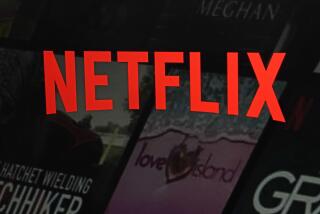Netflix partners with Microsoft on ad-supported subscriptions

Netflix on Wednesday said it would partner with tech giant Microsoft to offer a cheaper ad-supported streaming subscription plan.
The announcement comes as Netflix faces challenges in growing its 222-million subscriber base. In the first quarter, Netflix said it lost 200,000 subscribers; in the second quarter, it expects to lose 2 million more.
Currently, Netflix offers commercial-free subscription plans that start at $9.99 a month in the U.S. A lower-priced, ad-supported plan would give consumers more options for their budget as Netflix competes with other streaming services like Hulu and HBO Max.
As Netflix grapples with a loss in subscribers, the company’s vaunted “team” culture is coming under strain as some employees worry about their future.
“Microsoft has the ability to support all of our advertising needs as we work together to build a new ad-supported offering,” Greg Peters, Netflix’s chief operating officer and chief product officer, wrote in a blog post. “More importantly, Microsoft offered the flexibility to innovate over time on both the technology and sales side, as well as strong privacy protections for our members.”
The company has been cutting costs over the last few months, laying off 450 employees along with reducing contract positions in areas such as social media and marketing.
Netflix cited several reasons for the subscriber loss, including rising competition and password sharing. Executives said they would consider a lower-priced option with ads.
All ads on Netflix would be powered through the Microsoft platform, Microsoft said on Wednesday.
“We want publishers to have more long-term viable ad monetization platforms, so more people can access the content they love wherever they are,” Microsoft’s CEO Satya Nadella tweeted on Twitter.
The companies did not provide additional details in their blog posts about the pricing of the lower-cost ad-supported offering or when it will launch.
More to Read
Inside the business of entertainment
The Wide Shot brings you news, analysis and insights on everything from streaming wars to production — and what it all means for the future.
You may occasionally receive promotional content from the Los Angeles Times.









